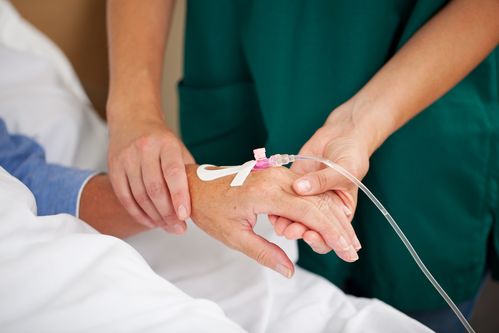“You have to know a doctor to find the best hospital”

Outcomes for treatments for illnesses such as cancer and lung disease COPD vary wildly between hospitals but patients still have no way of finding out which hospital performs best, despite a law that should allow patients to make an informed choice, the Volkskrant reported on Monday.
COPD patients in Limburg, for example, have a much greater chance of ending up in hospital as a result of an asthma attack than people in Noord-Holland. They will also spend three times as long in hospital at four times the cost, a recent report by the Dutch health council NZa and lung disease prevention organisation LAN has shown.
Cancer treatment outcomes also vary from one hospital to another. “The most frequently asked question asked on website Kanker.nl is ‘where are the people who know most about my type of cancer?’,” Irene Dingemans, chief of the care quality programme at the cancer patient federation NFK told the paper.
“You will not get an answer to that question unless you know a doctor, because they know very well which hospital they would choose. You have to be very assertive to find the best doctor for your problem. We think that is an extreme injustice which will only increase health inequality,” Dingemans said.
Very often patients are not even told of the differences between the quality of care, which can be significant, as some 27 research papers into methods and outcomes for various cancers on the NFK site show.
Transparency about results, which has been a requisite since the new competition-based healthcare system came into effect in 2006, is nowhere near where it should be, director of patient federation Patiëntenfederatie Arthur Schellekens said. “In 2022, all parties in health care agreed that over half of the performance figures would have to be accessible to the public by 2025. That is not going to happen. At the moment it’s just 20%.”
According to Schellekens, surgeons are reluctant about making information public, “We are emerging from a time of ‘doctor knows best’. You didn’t have much say as a patient. This is changing but that reflex is slow to die out.”
Research showing widespread differences in incontinence following prostate surgery is a case in point, he said. That research showed that in one Dutch hospital 19% of patients were left incontinent and in another 84%.
“There was a deafening silence from urologists when the results of the incontinence research came out,” Schellekens said.
Another reason for the differences in care is the emphasis on cost, said healthcare professor Jan Hazelzet. “Things would be a lot better if hospitals concentrated primarily on improving quality of care,” he told the paper.
According to Ad Melkert, chairman of the Dutch federation of hospitals NVZ, hospitals are “working hard to make data available but it is an administrative puzzle”.
Thank you for donating to DutchNews.nl.
We could not provide the Dutch News service, and keep it free of charge, without the generous support of our readers. Your donations allow us to report on issues you tell us matter, and provide you with a summary of the most important Dutch news each day.
Make a donation